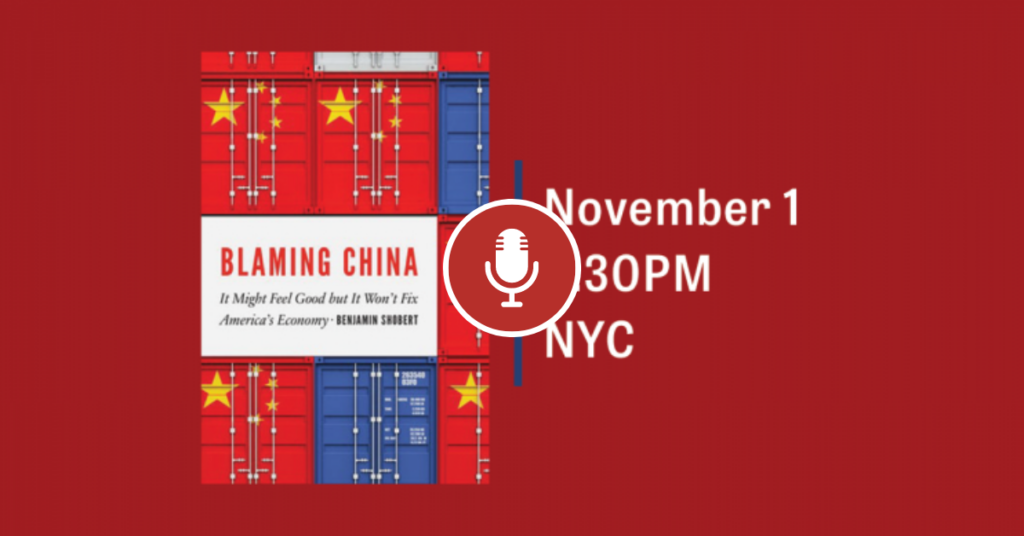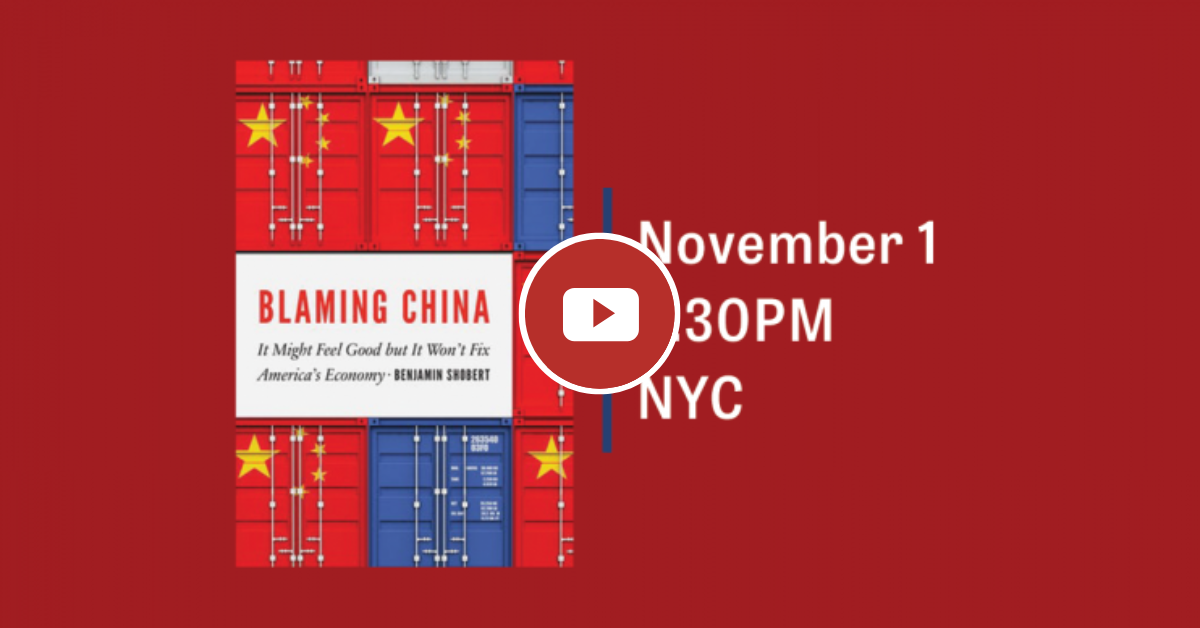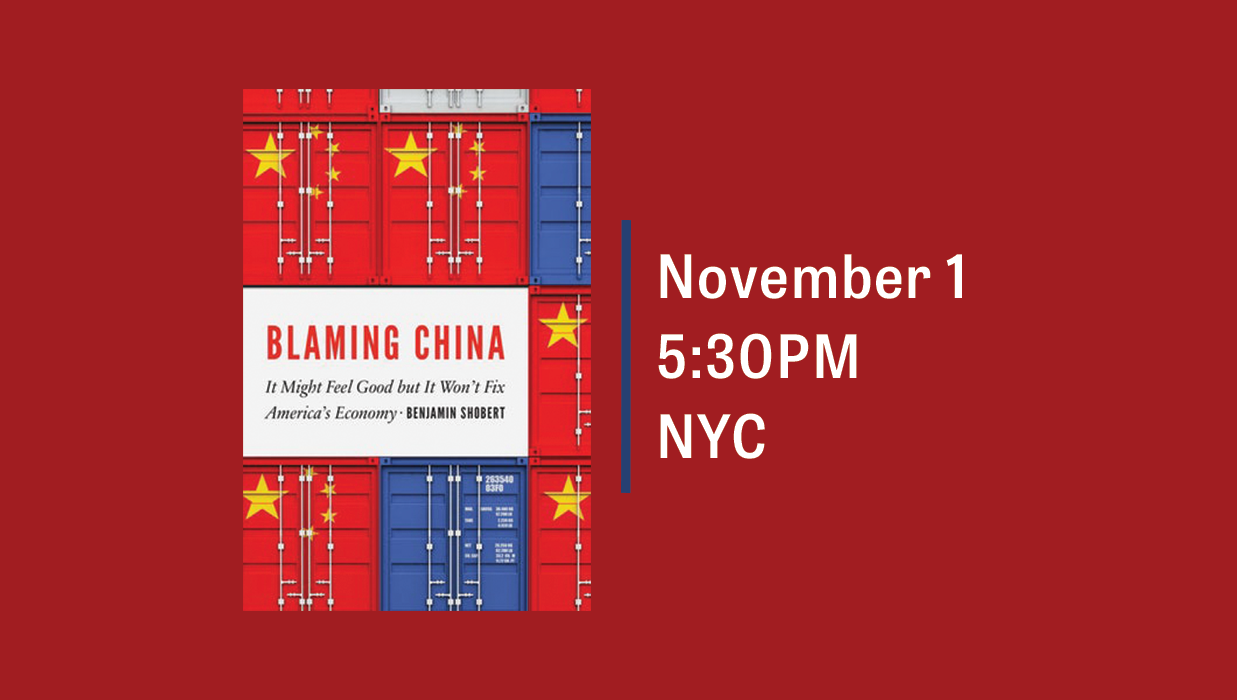Some of the central arguments of the 2016 presidential campaign emphasized growing American fear and distrust of globalization. Then-candidates Bernie Sanders and Donald Trump energized large portions of the electorate against existing free trade agreements, particularly the Trans-Pacific Partnership, and the trade relationship between the United States and China was held up for particular attack. Since he was elected, President Donald Trump has lambasted Chinese trade policies, and has argued that the trade imbalance between the two largest economies was part of a Chinese effort to undermine the United States.
In a new book, Blaming China: It Might Feel Good but it Won’t Fix America’s Economy, author Benjamin Shobert explains how many of the issues raised during the campaign, and general U.S. anxiety about a rising China, is misplaced. According to Mr. Shobert, China has become an easy target for Americans to project their frustrations with the overall political dysfunction, economic difficulties, and foreign policy blunders since 9/11, much of which actually has nothing to do with China.
On November 1, Mr. Shobert offered an alternative view of China, and how Americans should approach the most important bilateral relationship of the 21st century.
Benjamin Shobert is senior associate for international health at NBR, where his work has emphasized market access issues and innovation policies specific to the life science sector in China. He is the director of Healthcare NExT Strategy and Business Development at the Microsoft Artificial Intelligence and Research group and a lecturer in the Michael G. Foster School of Business at the University of Washington. He founded the Seattle-based Rubicon Strategy Group, a consulting firm that specialized in China and Southeast Asia’s healthcare, life science, and senior care industries.


